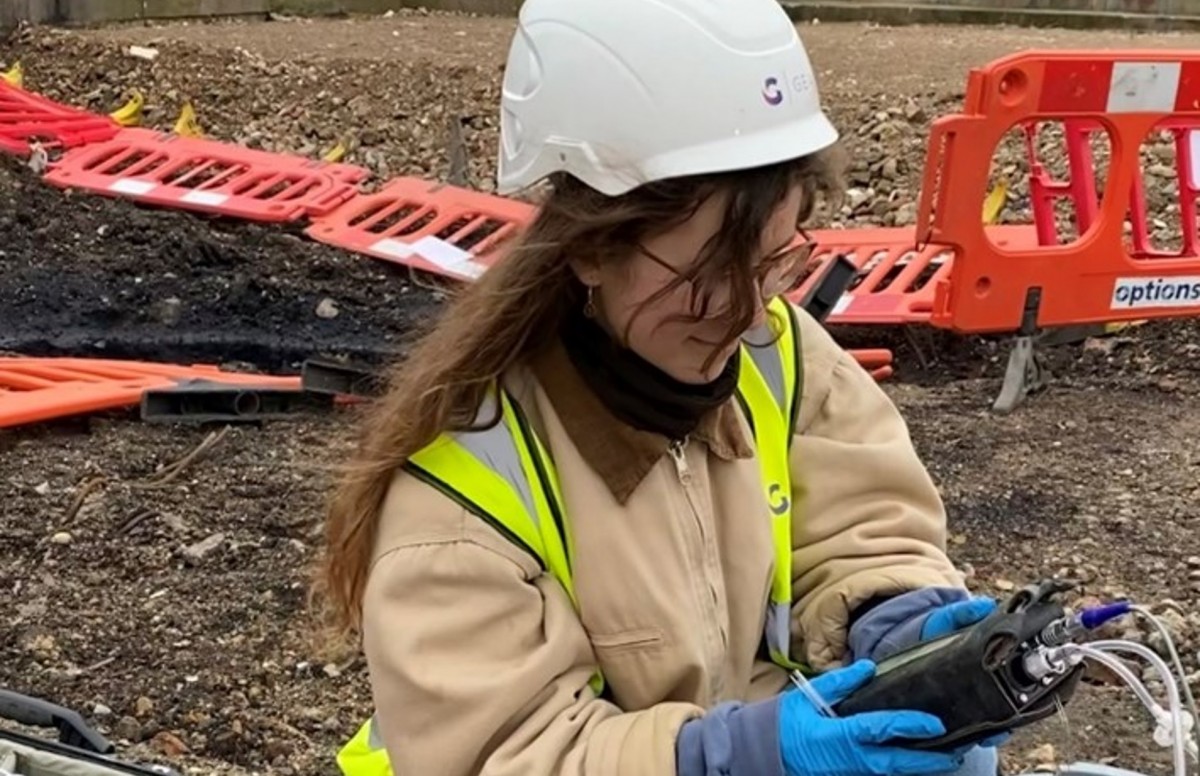Geotheta Can Be Fun For Everyone

A geotechnical engineer is a specialized civil designer that focuses on the behavior of soil, rock, and various other materials discovered below the Planet's surface. They apply clinical concepts and engineering strategies to assess the homes and actions of these materials to sustain the risk-free and reliable design, building, and upkeep of infrastructure jobs.
They perform site investigations, gather examples, perform lab examinations, and analyze data to review the viability of the ground for construction jobs - Geo Tech Engineering. Based upon their searchings for, geotechnical designers give recommendations for foundation design, slope stability, maintaining frameworks, and reduction of geotechnical threats. They collaborate with other professionals, such as engineers, architectural engineers, and construction groups, to ensure that geotechnical factors to consider are integrated into the total job style and execution
By assessing the behavior and residential properties of soil and rock, they can identify potential geotechnical hazards such as landslides, soil settlement, or incline instability. Their expertise helps prevent failings or crashes that can threaten lives and property. Below are some in-depth tasks and obligations of a geotechnical engineer: Website Examination: Geotechnical engineers conduct site examinations to collect data on subsurface conditions.
They interpret the information to recognize the homes and actions of the dirt and rock, including their stamina, leaks in the structure, compaction qualities, and groundwater conditions. Geotechnical Analysis and Design: Geotechnical engineers evaluate the information gathered during website examinations to assess the security and suitability of the site for building and construction jobs. They perform geotechnical estimations and modeling to review aspects such as bearing capability, negotiation, incline security, lateral planet pressures, and groundwater circulation.
Top Guidelines Of Geotheta
Structure Design: Geotechnical engineers play a crucial duty in creating foundations that can securely support the desired structure. They assess the dirt conditions and lots demands to determine the ideal foundation kind, such as shallow foundations (e.g., grounds), deep foundations (e.g (https://canvas.instructure.com/eportfolios/3071866/Home/Why_Geotechnical_Engineers_Are_Essential_for_Your_Construction_Projects)., stacks), or specialized strategies like soil enhancement. They take into consideration variables such as settlement limits, birthing ability, and soil-structure interaction to establish ideal foundation layouts
They assess building plans, screen website activities, and conduct field inspections to validate that the design suggestions are complied with. If unforeseen geotechnical problems occur, they analyze the circumstance and provide recommendations for removal or modifications to the design. Danger Analysis and Mitigation: Geotechnical designers assess geotechnical dangers and risks connected with the project site, such as landslides, liquefaction, or dirt erosion.

Partnership and Communication: Geotechnical designers work this website carefully with various other experts associated with a job, such as engineers, structural designers, and construction teams. Reliable communication and partnership are important to incorporate geotechnical considerations right into the total project layout and construction process. Geotechnical designers provide technological proficiency, solution queries, and ensure that geotechnical needs are met.
Everything about Geotheta
Here are some types of geotechnical engineers: Foundation Engineer: Foundation engineers focus on making and assessing foundations for frameworks. They assess the dirt problems, tons needs, and site features to figure out the most ideal structure kind and layout, such as superficial structures, deep foundations, or specialized strategies like pile foundations.
They review the variables affecting incline stability, such as soil buildings, groundwater problems, and slope geometry, and establish techniques to stop slope failings and alleviate dangers. Earthquake Engineer: Quake designers focus on examining and developing structures to withstand seismic pressures. They examine the seismic threat of a website, review soil liquefaction potential, and create seismic layout requirements to guarantee the safety and strength of structures throughout quakes.
They carry out area screening, collect examples, and analyze the accumulated data to identify the soil homes, geologic formations, and groundwater conditions at a website. Geotechnical Instrumentation Engineer: Geotechnical instrumentation designers focus on surveillance and determining the behavior of dirt, rock, and structures. They set up and maintain instrumentation systems that check elements such as dirt settlement, groundwater degrees, incline motions, and architectural displacements to evaluate performance and offer early cautions of prospective concerns.
Getting My Geotheta To Work
They tend to be investigative individuals, which implies they're intellectual, introspective, and analytical. They wonder, systematic, sensible, logical, and sensible. Several of them are additionally social, implying they're kind, generous, participating, client, caring, practical, understanding, sensible, and pleasant. Does this seem like you? Take our complimentary occupation examination to discover out if geotechnical engineer is one of your top career suits.
In the workplace setting, geotechnical designers use specialized software application devices to perform estimations, produce styles, and evaluate data. They prepare reports, testimonial task specifications, communicate with customers and staff member, and coordinate task tasks. The office setup supplies a conducive setting for research, evaluation, and partnership with various other experts associated with the task.
The Buzz on Geotheta
They often go to task websites to conduct site investigations, assess geotechnical problems, and collect data for analysis. These brows through involve traveling to various areas, sometimes in remote or difficult surfaces. Geotechnical designers might carry out soil tasting, conduct examinations, and display construction activities to make certain that the geotechnical facets of the project are being executed appropriately.
Geotechnical designers additionally function in specialized geotechnical labs. Geotechnical lab engineers work extensively in these settings, taking care of screening devices, operating tools, and videotaping information.
Comments on “Some Ideas on Geotheta You Need To Know”